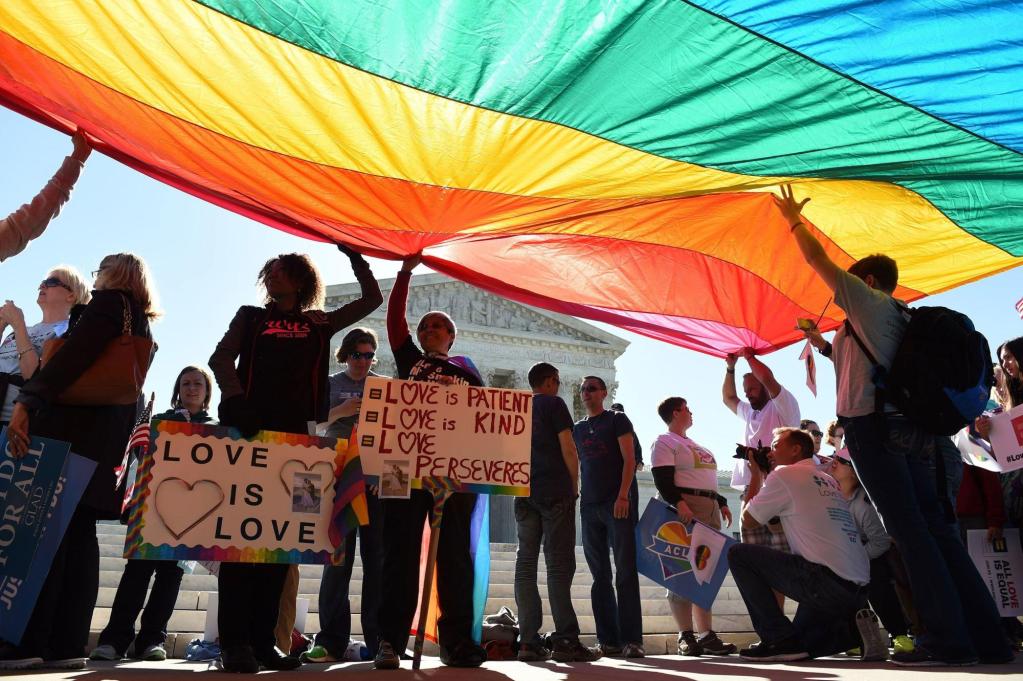Retired Justice Anthony Kennedy, who authored the Supreme Court’s landmark ruling legalizing same-sex marriage in 2015, expressed confidence that the decision will not be overturned. In a recent interview, Kennedy highlighted an emotional aspect that significantly influenced his opinion: the welfare of children adopted by same-sex couples.
During the interview in his chambers, Kennedy stated, “A large part of the reasoning in the opinion… was that I had not known how many children were adopted by parents who were gay or lesbian.” He initially estimated there were around 75,000 such children, but later realized the number is in the hundreds of thousands. This understanding, he noted, was a crucial part of his decision-making process.
The Supreme Court’s ruling in Obergefell v. Hodges was grounded in the Fourteenth Amendment’s guarantees of liberty and equal protection under the law. Kennedy emphasized that the exclusion of same-sex couples from marriage benefits would adversely affect their children, stating, “Without the recognition, stability, and predictability marriage offers, their children suffer the stigma of knowing their families are somehow lesser.”
Kennedy served as the swing vote in a closely divided court, with dissenting opinions from Chief Justice John Roberts and Justices Clarence Thomas and Samuel Alito. The late Justice Antonin Scalia was also a dissenter, famously withdrawing from social interactions with Kennedy after the decision.
In the current judicial climate, Kennedy acknowledged ongoing controversy surrounding the ruling. Justice Thomas has openly called for its reconsideration, and a pending appeal by former county clerk Kim Davis could potentially challenge the decision. Despite this, Kennedy believes that there is no collective interest among the current justices to overturn the ruling.
He emphasized the principle of stare decisis, which advocates for the respect of precedent in judicial decisions. “Stare decisis, in large part, is based on reliance, and there has been substantial reliance by adopting parents,” he explained. A reversal of Obergefell, he added, would create significant instability for countless same-sex families.
Kennedy’s tenure on the Supreme Court lasted for nearly three decades, during which he played a pivotal role in critical rulings on various issues, including abortion rights and affirmative action. As he reflected on his career in his memoir, “Life, Law & Liberty,” he discussed the personal conflicts he faced, particularly regarding decisions influenced by his Catholic faith.
He recalled a moment of contention during the 1992 case of Planned Parenthood v. Casey, where he cast a decisive vote to uphold Roe v. Wade. When asked how he would have voted in the recent case of Dobbs v. Jackson Women’s Health Organization, which overturned Roe, Kennedy refrained from speculation, stating, “I stand by what I’ve written.”
Kennedy also addressed the troubling atmosphere surrounding the Supreme Court, particularly following the May 2022 leak of a draft opinion in Dobbs. He expressed concern over the implications of the leak, emphasizing the need for a thorough investigation to maintain the integrity of the court.
His reflections extend beyond the legal sphere as he noted the increasingly contentious nature of public discourse. Kennedy lamented, “It’s very important to me that the opinions be written in a more moderate tone than they are. Ultimately, the law depends on the respect given to the court’s opinions.”
In a world marked by escalating political tensions, Kennedy remained neutral, choosing not to criticize individual justices or political figures, including former President Donald Trump. He expressed a broader worry about the state of political dialogue, urging for a return to civility.
As Kennedy continues to reflect on his legacy, his insights into the ongoing impact of Obergefell serve as a reminder of the complexities and responsibilities inherent in judicial decision-making.
